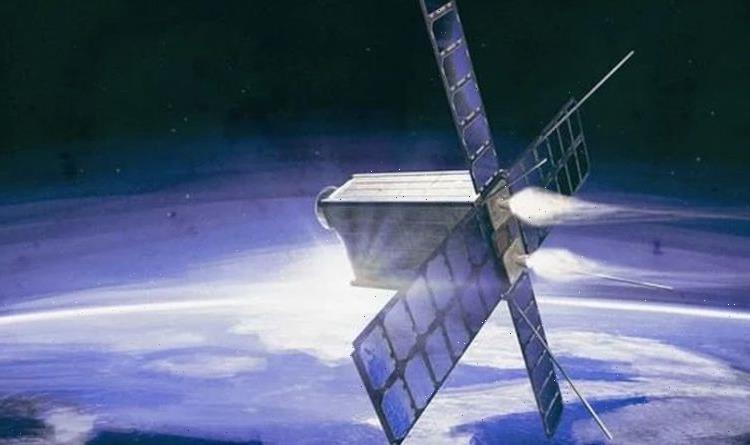Asteroid Bennu: NASA sheds light on near-earth object
We use your sign-up to provide content in ways you’ve consented to and to improve our understanding of you. This may include adverts from us and 3rd parties based on our understanding. You can unsubscribe at any time. More info
Space Forge’s robotic ForgeStar Orbital Vehicle, which is around the size of an oven, create semiconductors, alloys and pharmaceuticals in optimum conditions without the need for humans before returning to Earth. With the help of Government funding, the experts behind the project plan for it to be used for major medical advancements – such as vaccine research as well as the development of 3D bioprinting, which would help to develop new organs like kidneys. Currently, when tissue is created this way under normal gravity it can collapse easily.
But in a microgravity environment, which means there is close to no gravity at all, it is said to stay in place.
Space Forge says that some of the materials created in space inside the small satellite will never have been seen before.
They believe semiconductors made in space will be much better quality than the ones made on Earth.
And they can reportedly halve the energy use on the ground because of their improved efficiency.


This is said to be due to the vacuum in space, which is contaminant-free, allows compounds to be grown in layers one atom high, structured on top of each other in hundreds to thousands of layers.
Joshua Western, chief executive and co-founder of Space Forge, said: “We live on this planet and we have gravity that weighs us down and we have a dense ambient atmosphere filled with all sorts of things that contaminate processes.
“And to a large extent, we have a fairly consistent temperature across the whole planet. None of those things make for a good manufacturing base.”
“We have found ways to overcome some of them, however the one thing that we haven’t been able to overcome really is gravity, without paying for it dearly.”
Once launched into space, the satellite should lie around 300 to 500 miles from Earth and automatically construct the high-performance products.
Mr Western said a huge advantage to manufacturing these products in space is the easily changeable extreme temperatures down to minus 260C depending on which way the satellite faces.

He said: “You’ve got the really hot part, which is the part which is in sunlight taking the energy, and you point your radiators to the cold part of space to remove the heat efficiently so you can change the temperature you experience by changing the orientation.”
Space Forge has now received nearly £1.7 million in funding from the European Space Agency as part of its Boost! Programme.
The UK Space Agency has also supported the project and already invested £500,000 in Space Forge to develop a returnable and reusable platform for space.
The new factory will be the first-ever dedicated platform to create and commercialise space products that can be sold to businesses and for use by the government.
The company specialises in creating alloys, which include those used in car manufacturing, next-generation semiconductors, and composites that will be ten to a hundred times more efficient than ones that are possible to make on this planet.
DON’T MISS
German Greens to work with UK if they gain power [REVEAL]
Scientists claim giant comet is hurtling towards the Milky Way [REPORT]
UK to dodge EU power chaos as ‘remarkable’ link with Norway goes live [INSIGHT]


Mr Western said this would have the “most significant positive impact on Earth”, noting that it could bring “an enormous environmental benefit”.
Mr Western told Express.co.uk back in May 2020: “This technology could be used on other satellites, so rather than letting it burn up in the atmosphere and waste all the technology and raw materials, for the first time ever with our technology you’ll be able to fully return a satellite.
“We’re producing the whole factory and that sits inside a satellite which goes up into space on a rocket and then does the process between two weeks and six months, then deploys return technology and comes back down.
“We then separate the factory from the satellite and tune it up so we can use it again, it’s all operated remotely from humans on the ground and then in space, we run it from mission control.”
While currently the size of an oven, the company plan to expand its size so that it can return tonnes of products from space in one mission.
Paul Bate, chief executive of the UK Space Agency, said: “This success for Space Forge shows how UK firms are at the forefront of the global space industry.”
This comes after the UK announced its National Space Strategy, a plan to strengthen the UK as a world-class space nation by firing up its multibillion-pound space industry.
The strategy outlines plans to unlock growth in the space sector by collaborating internationally, growing the UK as a science and technology superpower and developing resilient space capabilities and services.
Source: Read Full Article
